In pictures: Detroit's rise and fall to bankruptcy
- Published
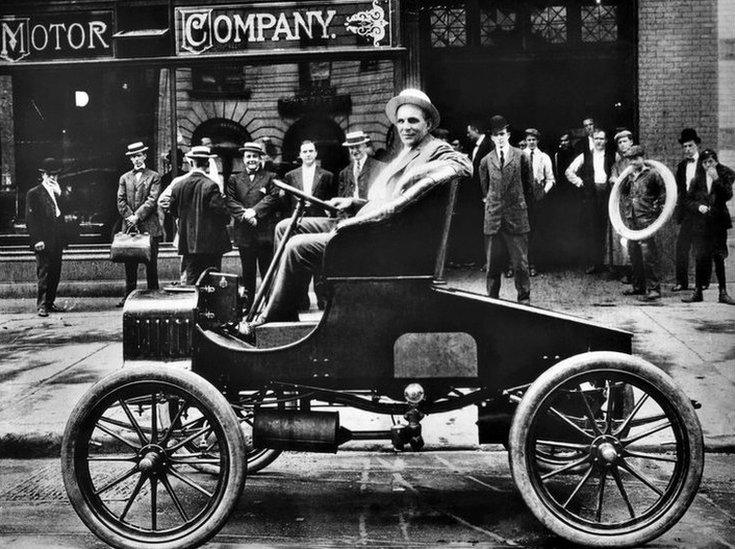
Detroit has become the largest US city ever to file for bankruptcy, with more than $18bn (£12bn) of debt. But it was once a hub of commerce and industry. US car manufacturer Henry Ford, pictured here in his new T Ford model, founded Ford Motor Company there.
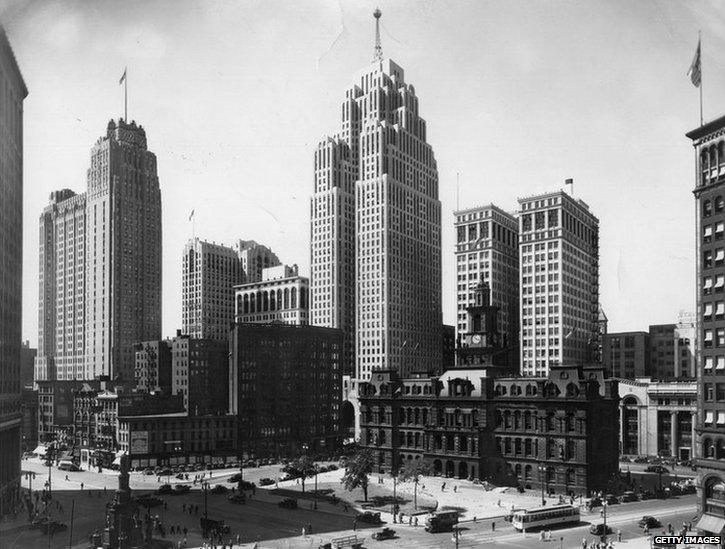
As the city's businesses grew, so did its buildings. By the 1930s, the skyline included the 47-storey Penobscot Building, centre, and the City Hall, seen with the clock tower in the foreground.
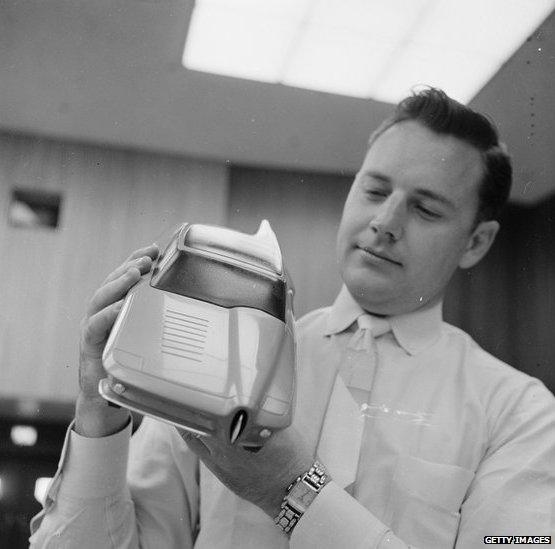
Detroit became known as Motor City due to its thriving car-making industry - with General Motors among the companies based there. In the 1950s four out of every five cars in the world were made in the US, half of them by GM. Detroit had the highest median income, and highest rate of home ownership, of any major US city.
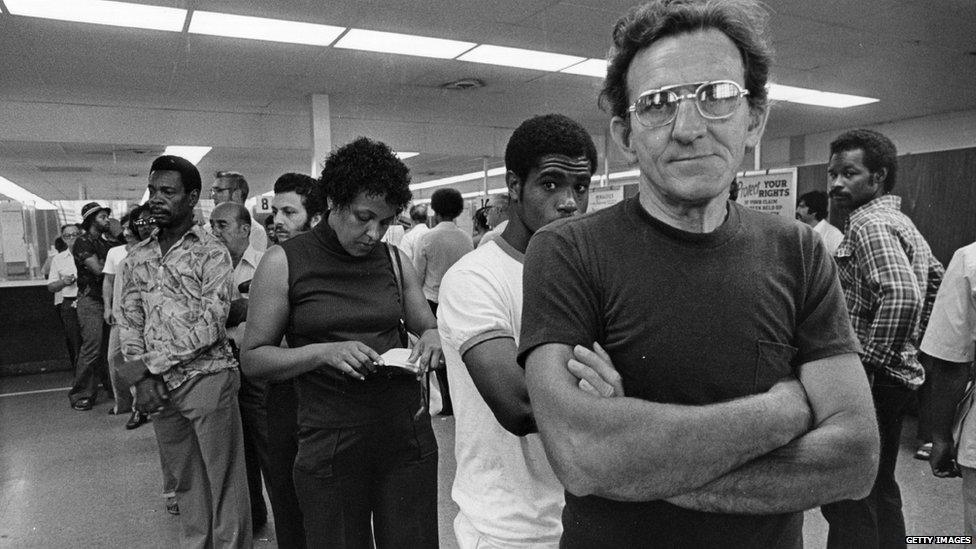
But the decline of the US car industry in the 1970s and 1980s left many people out of work.
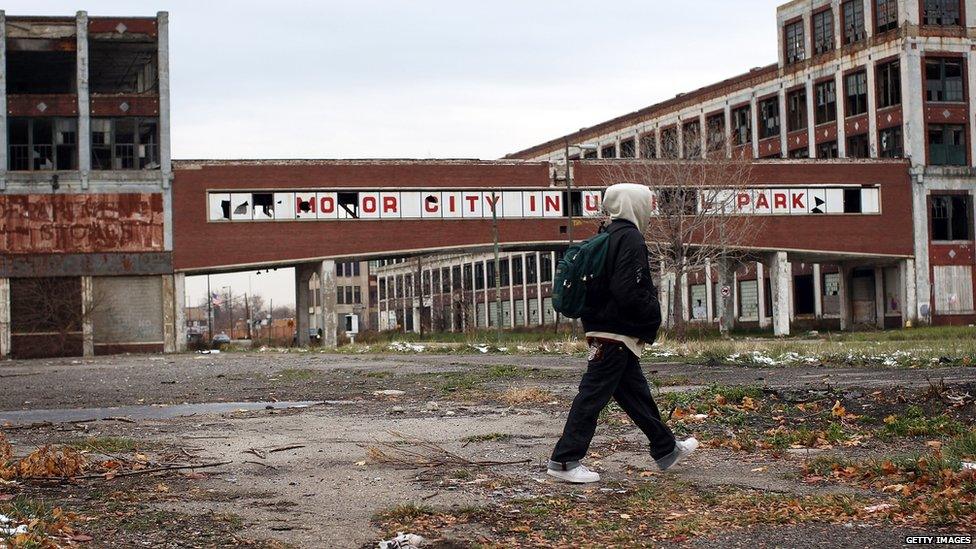
Unemployment now sits at 18.2% and more than a third of Detroit's residents are now classified as living in poverty.
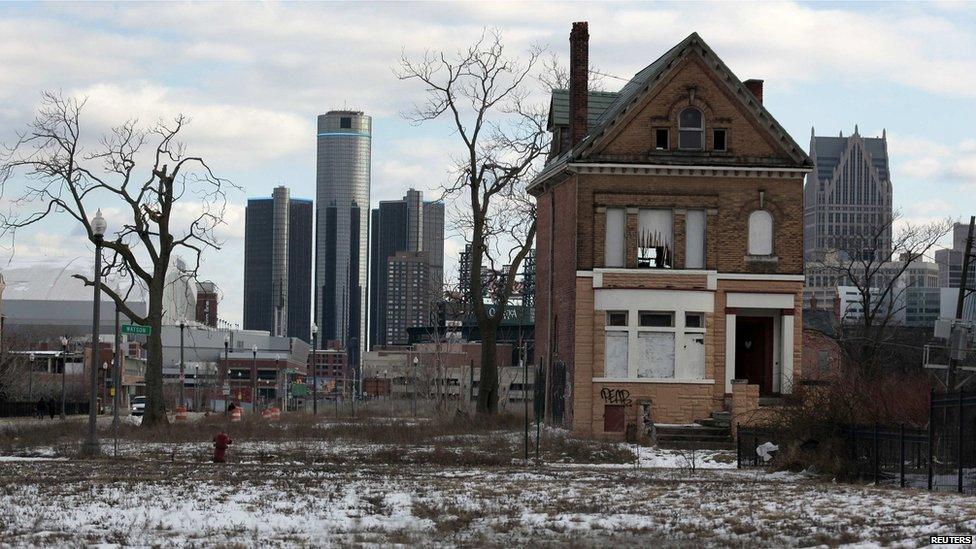
As well as the decline of industry, Detroit's finances have deteriorated due to mismanagement and corruption scandals.
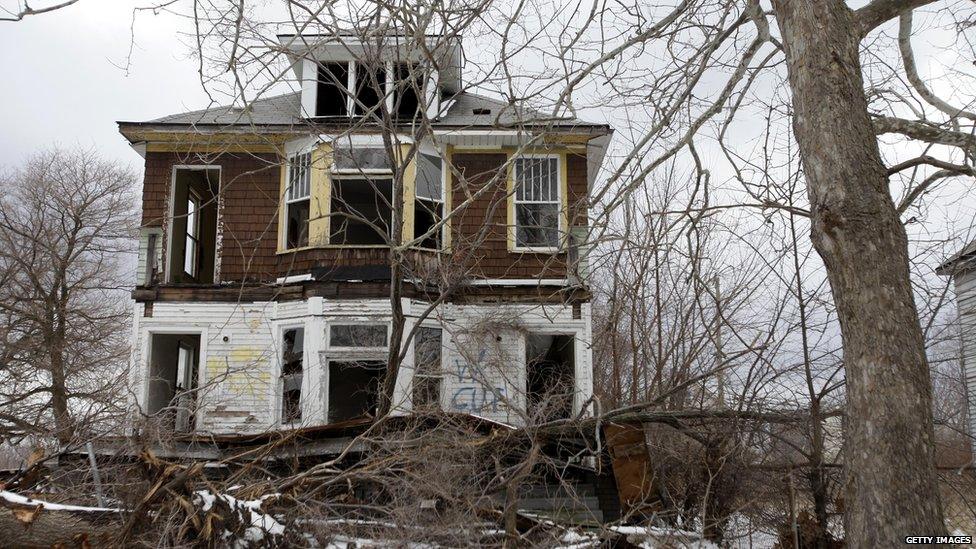
People have increasingly moved away, leaving previously smart neighbourhoods to fall into ruin. The city's population has shrunk from two million at its peak in the 1950s to 713,000 today.
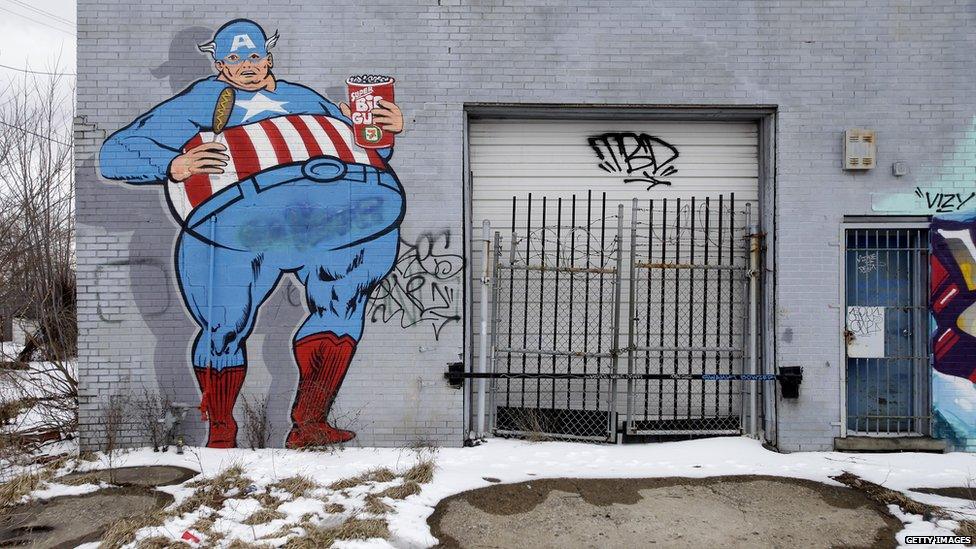
Declining investment in street lights and emergency services have made it difficult to police the city. The murder rate is at a 40-year high.
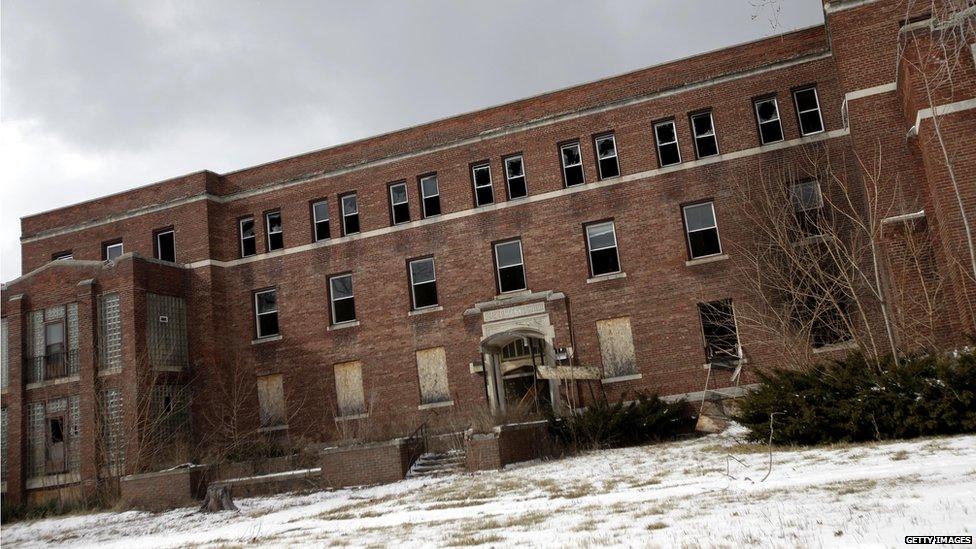
Public services are in a state of near-collapse. About 70,000 properties - including hospitals and fire stations - lie abandoned.
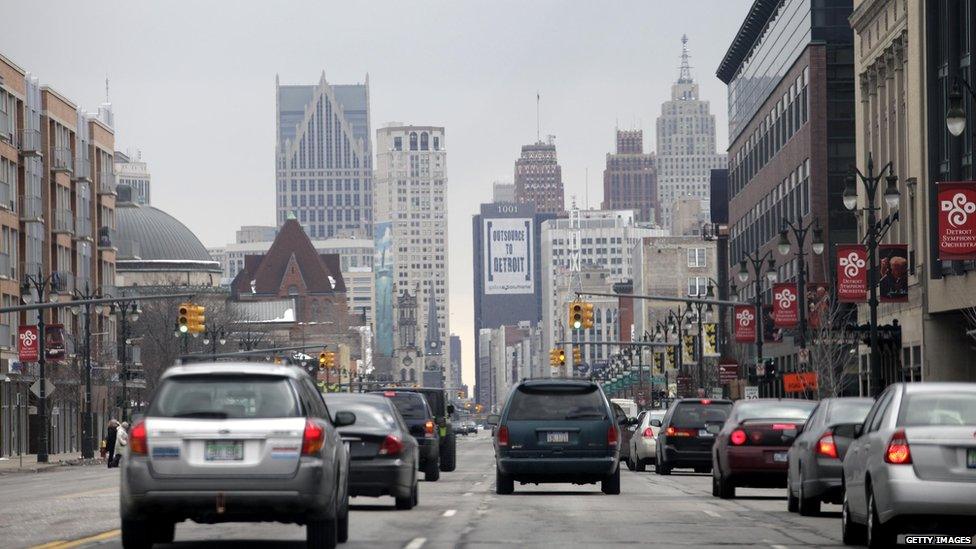
The city's emergency manager, Kevyn Orr, says filing for bankruptcy is the "first step toward restoring the city". Unions have criticised the move as a power grab.
- Published19 July 2013
- Published13 May 2013
- Published1 April 2013